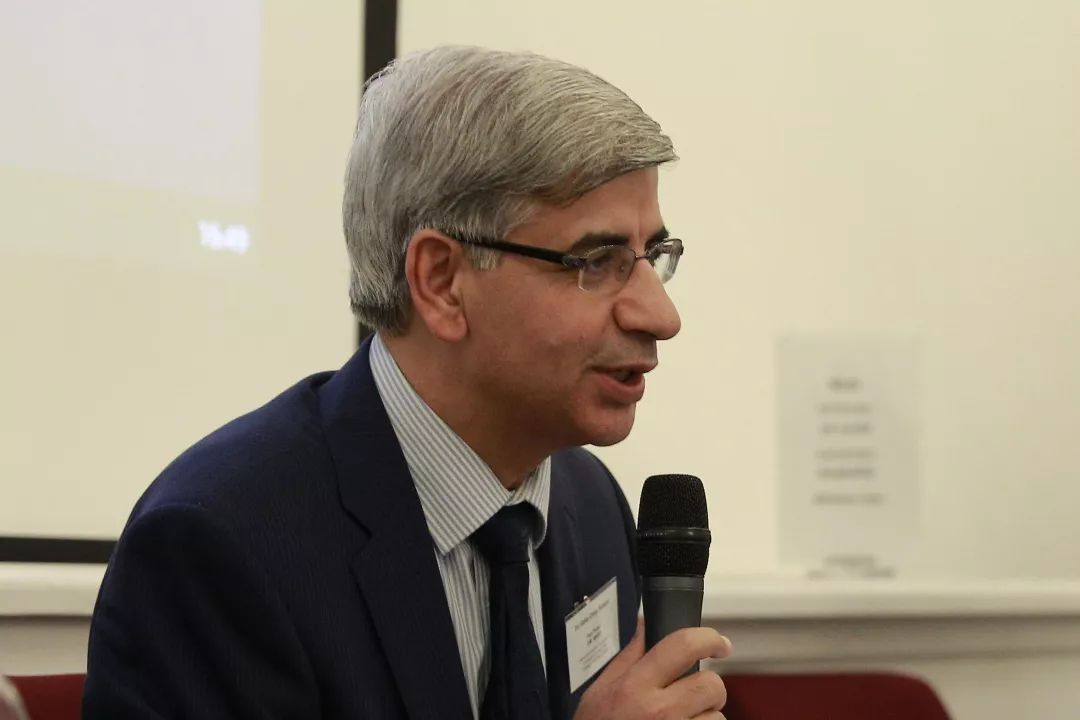 新闻动态
新闻动态
中国人民大学新闻学院“教师国际培训学院特色项目”邀请到知名国际传播学者Daya Thussu进行有关国际传播热点和前沿研究的系列讲座。该系列讲座自3月4日开始,3月11日截止,涉及当前国际传播理论、传播技术、信息流动特征、数字鸿沟、机构组织架构管理、国际参与者合法性和竞争等十个议题。Daya Thussu还将与讲座参与者就各自研究项目进行深入探讨和互动,针对研究实践中的问题和困惑进行指导。
Daya Thussu曾经一直是英国威斯敏斯特大学国际传播学教授,并担任该校中国媒体中心导师,印度媒体中心联合主任。他还是国际知名新闻传播学刊物全球媒体和传播的创立者和总编辑,以及18本知名著作的作者和编辑。

Daya Thussu
附具体讲座安排和介绍:
Internationalizing International Communication
Lecture/seminar programme
Lecture I 9am-12noon, 4 March 2019 Room: Mingxin 711
Introduction – International Communication
In this introductory session, we will discuss the course outline and aims; the broad framework of the key themes to be covered.
Lecture II 2pm-5pm, 4 March Room: Mingxin 711
Global Communications Infrastructure
This session will aim to explore how a privatised international communication infrastructure has accelerated the process of trans-nationalization. Particular attention will be given to the growth of the international satellite industry - the hardware of the global media and communications. This will be discussed within the framework of the neo-liberal policies of international institutions such as the World Trade Organisation.
Lecture III 9am-12 noon, 5 March Room: Mingxin 711
Multimedia Conglomerates, Localization and Regionalization
This session will explore how media conglomerates have consolidated their power globally, as a result of privatization, deregulation and liberalization in the media and communication sector. The session also raises the question of regulating media in an era of globalization, when the activities of global conglomerates seem increasingly to be beyond the authority of nation states.
Lecture IV 2pm-5pm, 5 March Room: Mingxin 711
Infotainment International
The focus of this session will be on the increasing tendency among news organisations to blur the boundaries between news and entertainment. The session will examine why this is happening and its implications for public media internationally.
Lecture V 1pm-4pm, 6 March Room: Mingxin 711
Global Communication as Entertainment
Though news is very important, in terms of global audience it has a miniscule presence when compared to mass consumption of entertainment media. It is perhaps fair to say that entertainment drives global media. In this session, we explore the dominant players in the global entertainment industry, focusing on Hollywood. Why does Hollywood play such a key part in shaping the global audio-visual landscape?
Lecture VI 6pm-9pm, 6 March for postgraduate class
No2. Teachingbuilding 2405
Theories of International Communication
In this session, we will explore some of the key theories of international communication, from the point of view of both political economy and cultural studies. The lecture will also examine the growing importance of rolling 24/7 news in global communication, assessing the continuing dominance of US-UK media on global news and information networks, and will discuss its implications for global news agendas and news consumers worldwide.
Lecture VII 10am-12noon, 7 March for undergraduate class Mingxin 0403
Global Media Cultures
Is globalization another form of US cultural hegemony? Is it leading to a homogenization of media cultures across the globe? This session will analyse this claim and explore whether it is a global consumer culture rather than an ‘American’ culture that is being promoted by the global media.
Lecture VIII 2pm-5pm, 7 March Room: Mingxin 711
Contra-flows in International Communication
Is the flow of cultural products one-way only - from the media-rich North (or more accurately the US-UK duopoly) to the media-poor South? The one-way-flow argument has traditionally been a key part of debates in international communication. Besides analysing this claim, the session will aim to explore if there exist other types of flows - South-South or increasingly South-North. The discussion will be contextualised with examples from both the arena of popular entertainment and the world of news and current affairs programming.
Lecture IX 9am-12noon, 8 March Room: Mingxin 711
Digital Divides and Dividends
In this session our focus will be on how the worldwide use of the internet has influenced the global media and communication landscape. The session will examine the crucial importance of the new technologies in development communication. It will explore the digital divides and dividends, and contrast the colonisation of the cyberspace with the idealism of the pioneers of the internet, who saw it as an empowering and democratising medium.
Lecture X 2pm-5pm, 8 March Room: Mingxin 711
Legitimacy and competitiveness of global media players
This lecture will examine the emergence of new global media players such as from the BRICS nations (Brazil, Russia, India, China and South Africa), with special attention to two major BRICS nations - China and India – the world’s two fastest growing large economies with aspirations to global leadership. It will examine the problems and prospects for their global ascent.
Lecture XI 9am-12noon, 11 March Room: Mingxin 711
Summing up and interaction with faculty and students on their academic research
Daya Thussu is Visiting Professor and Disney Chair in Global Media at Schwarzman College, Tsinghua University in Beijing. For many years he was Professor of International Communication and Co-Director of India Media Centre as well as research advisor to the China Media Centre at the University of Westminster in London. He is the Founder and Managing Editor of the Sage journal Global Media and Communication. Author or editor of 18 books, among his main publications are: Electronic Empires (Arnold: 1998); International Communication - Continuity and Change, third edition (Bloomsbury Academic, 2019); Media on the Move – Global Flow and Contra-flow (Routledge: 2007); News as Entertainment: The Rise of Global Infotainment (Sage: 2007); Internationalizing Media Studies (Routledge: 2009); Media and Terrorism: Global Perspectives (Sage: 2012, co-edited with Des Freedman); Communicating India’s Soft Power: Buddha to Bollywood (Palgrave, 2013/Sage, 2016); Mapping BRICS Media (Routledge: 2015, co-edited with Kaarle Nordenstreng) and China’s Media Go Global (Routledge, 2018, co-edited with Hugo de-Burgh and Anbin Shi).
daya.thussu@sc.tsinghua.edu.cn; daya.thussu@gmail.com
供稿/赵晋
编辑/衣巷、茜茜